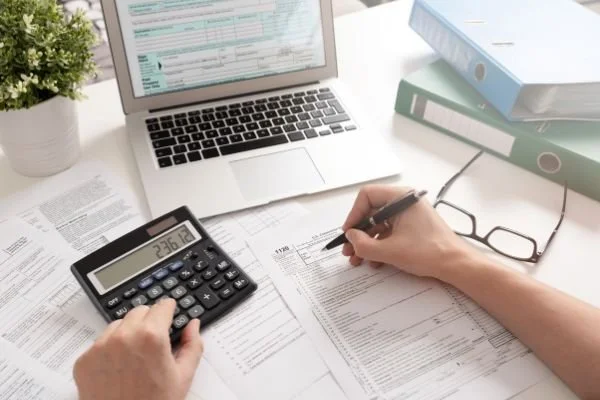Divorce Solicitors in Plymouth
Going through a divorce or separation can feel overwhelming, emotionally, financially, and legally. It’s a major life change, and having the right legal support can make all the difference. At Nash & Co Solicitors, our experienced divorce solicitors in Plymouth are here to guide you with clear advice, practical support, and a strong focus on helping you move forward with confidence. We understand that every family situation is different, and we’ll work closely with you to find the best approach for your circumstances.
Divorce often means more than just ending a marriage, it can involve important decisions about child arrangements, finances, property, and future security. If you need support with agreeing child living arrangements, applying for a Child Arrangement Order, or reaching a Financial Settlement, our specialist family law teams are here to help. Whatever challenges you’re facing, you can rely on us for sensitive advice, strong representation, and a calm, reassuring approach focused on achieving the best possible outcome for you and your loved ones.
arrow_back Back to Family Law
How Our Divorce Solicitors in Plymouth Can Support You
Going through a divorce or separation often means dealing with difficult decisions about your children, finances, and future security. At Nash & Co Solicitors, our experienced divorce solicitors in Plymouth provide clear, practical advice tailored to your situation, always with a focus on reducing stress and finding positive solutions. Whether you need help reaching a financial settlement, agreeing child arrangements, or protecting your interests, we’re here to support you with care, clarity, and strong representation.
Wherever possible, we aim to resolve matters through negotiation and mediation, helping you avoid the cost and conflict of court proceedings. If going to court is necessary, you can trust us to guide you through the process with clear advice and expert advocacy. Our family law team has particular expertise in complex divorce cases involving businesses, pensions, and high-value assets, and we’ll work closely with you to secure a fair financial settlement and protect your family's future. With our divorce solicitors based in Plymouth, you’ll have experienced, supportive professionals by your side from start to finish.
The Divorce process explained
Starting divorce proceedings can feel overwhelming, but understanding the key steps can make the process feel more manageable. Our divorce solicitors in Plymouth will guide you through every stage clearly and carefully, making sure you know exactly what to expect.
The typical divorce process involves:
Filing an application for divorce (now called a divorce application, replacing the old "petition")
Serving the application to the other spouse, who must acknowledge receipt
Applying for the Conditional Order (previously called the Decree Nisi) once the court approves the application
Finalising the divorce by applying for the Final Order (previously Decree Absolute), which legally ends the marriage
Alongside the legal process, you may also need to agree on financial settlements, child arrangements, or other practical matters. Our team can guide you through these negotiations separately or alongside your divorce, ensuring that every part of your separation is handled properly.
We’ll always explain your options clearly, outline realistic timeframes, and work with you to keep the process as smooth, stress-free, and amicable as possible, while protecting your interests at every stage.
Fixed-Fee Divorce Solicitors in Plymouth
We know that the cost of divorce can be a major worry, which is why we’re committed to being clear, upfront, and transparent about our fees.
We offer a first appointment with one of our experienced divorce solicitors for just £175 +VAT. During this meeting, we’ll talk through your situation carefully, ask any important questions, and then provide you with a personalised written summary of our advice — including the next steps we recommend and how we can support you moving forward.
To help keep your divorce as affordable as possible, we also offer a fixed fee divorce package at £650 +VAT. We’ll explain exactly what’s included at the outset, and keep you informed of any costs every step of the way, so there are no hidden surprises.
To arrange your appointment, call us today on 01752 827030, email us at family@nash.co.uk, or request a free call back. We can meet with you in person, by phone, or via Teams or Zoom — whatever works best for you.
What to expect from our Divorce Solicitors
Choosing the right legal support for your divorce is one of the most important decisions you’ll make. It can affect your relationships with your children, your future financial security, and where you’ll live — so it’s crucial to have advice that’s tailored to you, and a solicitor you feel comfortable with.
At Nash & Co Solicitors, we don’t believe in a "one size fits all" approach to divorce. Every case is unique, and we’ll work closely with you to understand your situation, your priorities, and your goals for the future. You’ll receive clear, personalised advice at every stage, with a strong focus on helping you make confident, informed decisions.
We know that divorce isn’t easy. Our experienced divorce solicitors will be by your side throughout the process, offering practical support, compassionate guidance, and strong representation whenever you need it most.
phone_callback Request a free call back
call Call us on 01752 827030
email Get in touch
Why choose Nash & Co Solicitors for your divorce?
Choosing the right divorce solicitors can make a real difference to how smoothly your separation goes, and to the outcome you achieve. At Nash & Co Solicitors, we combine clear legal advice with a supportive, practical approach that’s focused on protecting your interests and helping you move forward with confidence.
Here’s why so many people trust us to help them through their divorce:
Experienced divorce solicitors providing clear, tailored advice at every stage
Strong focus on minimising conflict and making the process as straightforward as possible
Expertise in financial settlements, child arrangements, and complex high-value cases
Transparent, affordable pricing with fixed fee options available
Supportive, approachable team committed to achieving the best outcome for you
Contact Our Divorce Solicitors in Plymouth
If you’re ready to start the divorce process, or simply want clear advice about your options, we’re here to help. Our experienced divorce solicitors in Plymouth will guide you with practical, personalised support, always focused on achieving the best outcome for you and your family.
Call us today on 01752 827030, email us at family@nash.co.uk, or request a free call back and one of our team will be in touch at a time that suits you. You can meet with us in person, chat over the phone, or we can arrange a Teams or Zoom call. We’re happy to go with whatever feels easiest for you. However you’d prefer to talk to us, you’ll find a friendly, supportive team ready to listen, offer clear advice, and help to make a difficult time feel a little bit easier.
Frequently asked questions about Divorce in Plymouth
-
On 6 April, the divorce process changed to a ‘no fault’ system. Once the application is submitted, you must then wait 20 weeks before confirming you still wish to proceed with a divorce. On confirming, you will then be granted a Conditional Order. This has replaced the traditional Decree Nisi. 6 weeks after the Conditional Order, you can apply for the Final Order, which has replaced the Decree Absolute.
-
There is only one ‘ground’ for divorce and that is the irretrievable breakdown of the marriage. Previously, the person who sent the papers to Court (the Petitioner but is now called the Applicant) would rely on one of 5 facts to prove to the Court that the marriage had broken down irretrievably, but this is no longer necessary. You simply have to confirm to the Court that the marriage has irretrievably broken down. The Court has no right to question this.
-
The good news is you can now get a no fault divorce! This legislation came into force on 6 April 2022. This means couples can now get divorced without having to explain why the marriage has broken down. If one party wants a divorce, they can get one. Parties can also submit a joint application to the Court, which is not something that was possible previously.
-
The process will take an absolute minimum of 26 weeks. From application, you must wait 20 weeks before applying for the Conditional Order and then a further 6 weeks before the application for a Final Order can be made. However, it is likely to take longer because the Court will need to process the applications for the Conditional and Final Orders, and it is common (and sometimes important) to delay the application for a Final Order until the finances have been resolved.
The Court can reduce the 20-week period, but it is only in very extreme circumstances that this will be possible. There is no way to obtain a 'quick divorce' and companies offering anything of the sort are likely to mean they can only prepare your application quickly. The divorce process itself is a rigid structure and is in a fixed timetable, which we have no control over.
-
The Court fee for a divorce is currently £593. Applicants can make an Application for Help with Fees where their income and capital is assessed to determine if they can get help paying the fee.
Our fees for acting on your behalf as the Applicant are £650 plus VAT and £350 plus VAT as a respondent.
-
Under the previous divorce law, it was possible for the party who received the divorce application, (the Respondent) issued by their ex to defend the divorce but these cases were rare. However, under the new divorce law, defended divorces are not possible.
The Respondent can still dispute the divorce, but this is now only possible on grounds of jurisdictional issues, questions around whether there is a legal marriage, or if the respondent has already issued an application.
-
If you have an email address for your ex, you can now serve them with the divorce application by email, but a paper copy should also be sent to them. If you do not have this information, then efforts to locate the respondent would need to be made, such as employing a process server to try and track them down.
If you can prove to the Court that you have made all efforts to track the respondent down, you may be able to proceed with a divorce.
-
Previously, you would have been able to defend the divorce. However, this is no longer possible and unfortunately, if the Applicant informs the Court that your marriage has irretrievably broken down, the Court must accept that this is the case, and the divorce will be allowed to proceed.
-
In the long-term, it does not make a difference who divorces who. However, the Applicant does largely control the proceedings up until the point of the Conditional Order because the process relies on the applicant to make the necessary applications in a reasonable timeframe.
-
If the acknowledgment of service is not returned, after a period of time, the Court will contact the Applicant with their options. You must then prove that they have received a copy of the application. This would usually involve paying a process server to hand-deliver the application to the respondent. Once the Court knows for certain that the respondent has been served, you can proceed with the application regardless of whether they return the acknowledgment of service or not.
-
You are officially divorced once the Court grants the Final Order (previously called a Decree Absolute). Until this date, you are still legally married. Once you have the Final Order, you are free to remarry if you wish.
What our clients say
Related insights
Meet the Family Team
Get in touch
If you’re lookining for divorce solicitors in Plymouth, you’ve come to the right place! Please fill out the form below and let us know whether you would like us to call you, or email you. One of our family team will be in touch as soon as we can. If your enquiry is urgent then please call us on 01752 827030.
arrow_back Back to Family Law




























